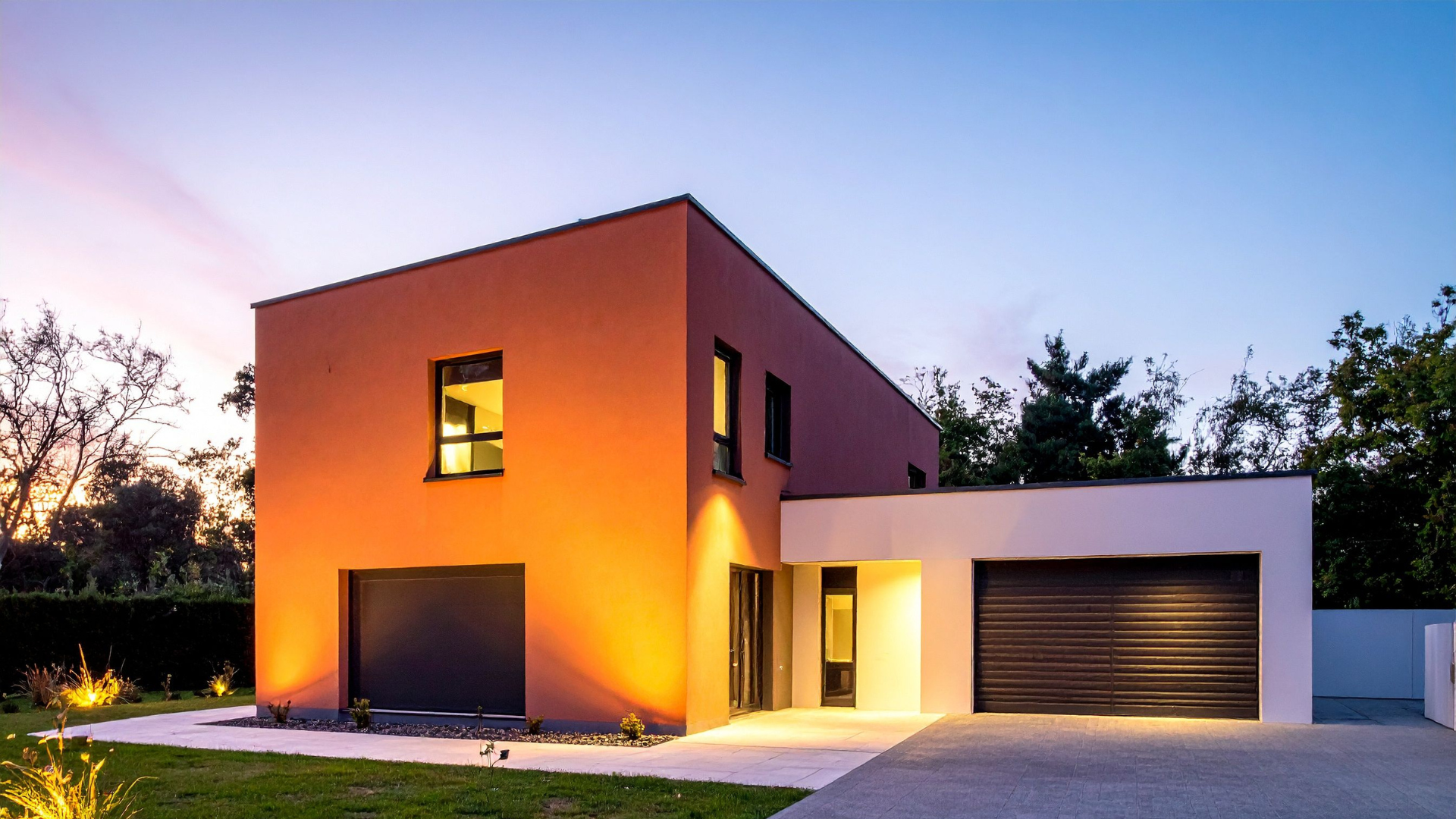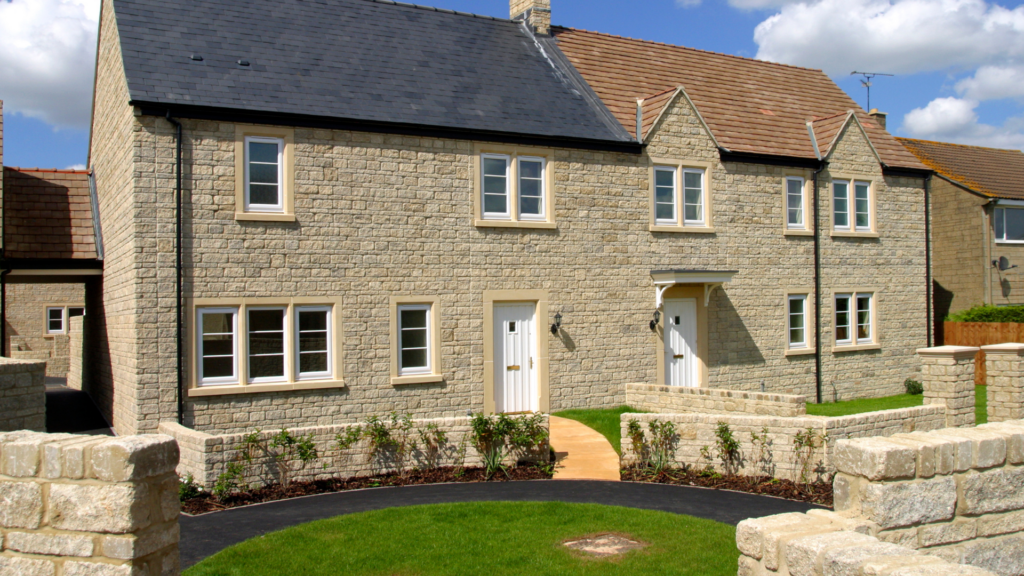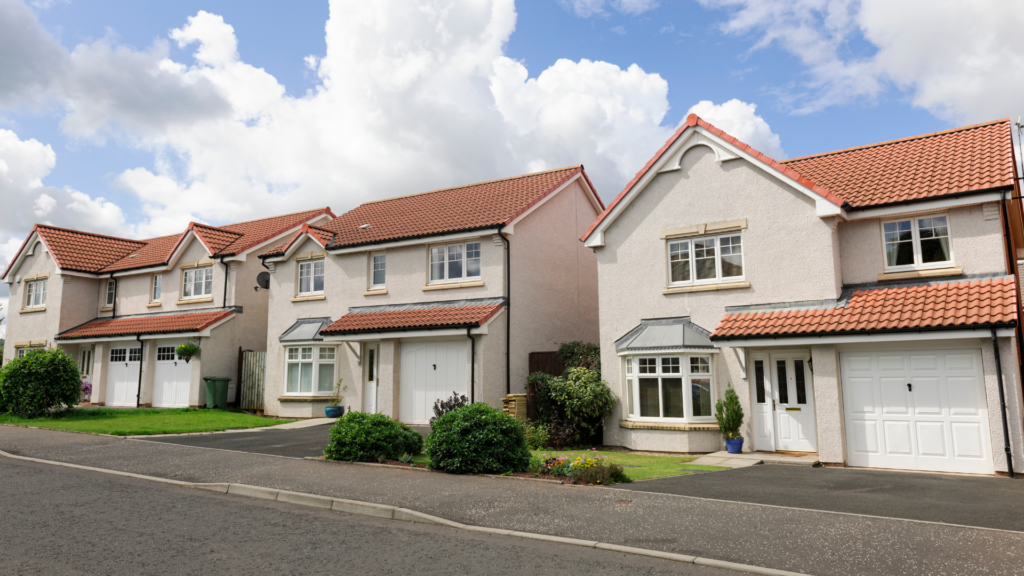- What is a Mortgage Repayment?
- How Much Will Your Mortgage Cost Per Month?
- How Does the Mortgage Term Affect Repayments?
- Whatâs the Impact of Interest Rates?
- How Much Income Do You Need for These Mortgages?
- What Deposit Will You Need?
- What Other Costs Should You Consider?
- Other Factors That Affects Your Mortgage Repayments
- Key Takeaways
- The Bottom Line
How Much Will You Pay on a £100,000-£150,000 Mortgage?

Let’s face it—no one likes surprises, especially with finances.
That’s why it’s important to know exactly what you’re getting into before you take on a mortgage.
With a clear picture of your monthly repayments, you can take control of your finances, avoid unexpected stress, and focus on enjoying your new home.
Whether you’re considering a cosy £100,000 home, a spacious £120,000 property, a dream £150,000 abode, or even up to £180,000, knowing your monthly payments is a must.
In this guide, we’ll break down the numbers for each mortgage amount so you know exactly what to expect and can move forward with confidence.
What is a Mortgage Repayment?
A mortgage repayment is the amount you pay back to your lender each month for borrowing money to buy your home. It includes both the loan (capital) and the interest.
With a repayment mortgage, you gradually pay off both the loan and interest over the mortgage term.
But, with an interest-only mortgage, you only pay the interest each month. This means the loan amount remains unchanged, and you’ll need to repay it in full at the end of the mortgage term.
Image
How Much Will Your Mortgage Cost Per Month?
How much you’ll pay each month for a mortgage depends on a few things: the term length, the interest rate, and whether it’s a repayment or interest-only mortgage.
Whether you’re looking at a £100,000, £120,000, or £150,000 mortgage, the monthly repayments can vary significantly based on these details.
For example, with a 5% interest rate over 25 years, here’s what you can expect to pay:
£100,000 Mortgage
If you take out a £100,000 mortgage over 25 years at a 5% interest rate, you’ll pay around £585 per month.
If you extend the term, your monthly payments will drop, but you’ll pay more interest over time.
Here’s a breakdown of possible monthly payments for a £100,000 mortgage:
| Term | 2% Rate | 3% Rate | 4% Rate | 5% Rate | 6% Rate |
|---|---|---|---|---|---|
| 15 years | £643 | £691 | £740 | £791 | £844 |
| 20 years | £505 | £554 | £606 | £660 | £716 |
| 25 years | £424 | £474 | £528 | £585 | £644 |
| 30 years | £369 | £422 | £477 | £537 | £600 |
£120,000 Mortgage
For a £120,000 mortgage over 25 years at the same 5% interest rate, you’re looking at around £702 per month.
As with any mortgage, you can reduce the monthly payments by choosing a longer term, but this means you’ll end up paying more in interest overall.
Here’s what the monthly payments might look like for a £120,000 mortgage:
| Term | 2% Rate | 3% Rate | 4% Rate | 5% Rate | 6% Rate |
|---|---|---|---|---|---|
| 15 years | £772 | £829 | £888 | £949 | £1,013 |
| 20 years | £606 | £665 | £727 | £792 | £859 |
| 25 years | £509 | £569 | £633 | £702 | £773 |
| 30 years | £443 | £506 | £573 | £644 | £720 |
£150,000 Mortgage
If you’re taking out a £150,000 mortgage, expect to pay about £877 per month over 25 years at a 5% interest rate.
Just like with smaller mortgages, stretching the term can lower the monthly cost but increases the total interest paid over time.
Here’s a breakdown of monthly payments for a £150,000 mortgage:
| Term | 2% Rate | 3% Rate | 4% Rate | 5% Rate | 6% Rate |
|---|---|---|---|---|---|
| 15 years | £965 | £1,036 | £1,110 | £1,186 | £1,266 |
| 20 years | £758 | £831 | £908 | £990 | £1,074 |
| 25 years | £636 | £711 | £792 | £877 | £966 |
| 30 years | £554 | £633 | £716 | £805 | £900 |
£180,000 Mortgage
For a £180,000 mortgage over 25 years at a 5% interest rate, your monthly payment will be around £1,053.
You can lower your monthly payments by choosing a longer term, but this means you’ll pay more interest overall.
Here’s a quick look at what your monthly payments could be for a £180,000 mortgage:
| Term | 2% Rate | 3% Rate | 4% Rate | 5% Rate | 6% Rate |
|---|---|---|---|---|---|
| 15 years | £1,159 | £1,244 | £1,332 | £1,423 | £1,518 |
| 20 years | £909 | £997 | £1,089 | £1,188 | £1,288 |
| 25 years | £763 | £853 | £950 | £1,053 | £1,160 |
| 30 years | £665 | £759 | £860 | £966 | £1,080 |
These tables give you a clear picture of how your monthly payments change based on the loan amount, interest rate, and mortgage term.
If you’re still unsure about what your payments might look like, it’s always helpful to use a mortgage calculator or speak with a broker for personalised advice.
How Does the Mortgage Term Affect Repayments?
One easy way to reduce your monthly repayments is by extending the mortgage term.
A 25-year mortgage is pretty standard, but stretching it to 30 or 35 years could help bring those monthly costs down.
But remember, the longer the term, the more interest you’ll end up paying overall.
For example, let’s say you take out a £120,000 mortgage at 5%.
Over 25 years, you’ll pay around £702 a month.
Stretch that to 30 years, and your payments drop to around £644. But be warned – you’ll pay a lot more in interest over those 30 years.
It’s the same story with £100,000 and £150,000 mortgages.
A longer mortgage term means smaller monthly payments, but you’ll pay more in total. It’s a trade-off – choose a term that fits your budget without overpaying in the long run.
Image
What’s the Impact of Interest Rates?
Interest rates play a big role in how much you’ll pay each month. The higher the rate, the more you’ll be paying.
For example, at a 3% interest rate, you’d be paying around £474 per month. Push that up to 6%, and your payments jump to £644.
It’s the same story with larger mortgages. For a £120,000 mortgage, you’d pay about £569 monthly at 3%, but that goes up to £773 at 6%.
A £150,000 mortgage would cost you around £877 at 5%, climbing to £966 at 6%.
And for a £180,000 mortgage, you’re looking at roughly £1,053 per month at a 5% rate, which would rise to £1,160 if the rate increased to 6%.
To get a clearer idea, refer to the tables above, which show how your monthly payments change based on the interest rate and mortgage term for £100,000, £120,000, £150,000 and £180,000 mortgages.
Because rates can vary, it’s a good idea to work with a mortgage broker to find the best rate for your situation and avoid surprises.
How Much Income Do You Need for These Mortgages?
Most lenders in the UK will offer 4 to 4.5 times your salary. So, for a £100,000 mortgage, you’d need to earn between £18,000 and £25,000.
For a £120,000 mortgage, a salary of around £30,000 is usually required.
If you’re considering a £150,000 mortgage, you’d need an income of about £35,000 to £40,000.
For a £180,000 mortgage, you’d be looking at an income requirement of roughly £40,000 to £45,000 annually.
If your salary doesn’t quite cut it, a joint mortgage with a partner or family member can increase your borrowing power.
And in some cases, if you’re in a stable profession like teaching or nursing, certain lenders may offer up to 6 times your salary.
Image from article
What Deposit Will You Need?
Most lenders ask for a 5-10% deposit. For a £100,000 mortgage, that means you’ll need between £5,000 and £10,000.
With a £120,000 mortgage, you’d need £6,000 to £12,000, and for a £150,000 mortgage, it’s £7,500 to £15,000.
If you’re looking at a £180,000 mortgage, expect a deposit between £9,000 and £18,000.
This gives you a loan-to-value ratio of 90-95%. This means you’ll be borrowing 90-95% of the property’s value.
Of course, the bigger your deposit, the better the interest rates you can access.
If you’ve got a larger deposit (say, 25%), lenders will often offer you more competitive rates.
And if you’ve got bad credit or are buying a non-standard property, you might need that bigger deposit to get approved in the first place.
If you’re unsure about how much deposit you need, using a Loan to Value (LTV) calculator can help you figure out the percentage of the property’s value you’ll be borrowing.
What Other Costs Should You Consider?
Your monthly repayments aren’t the only expense when getting a mortgage. There are several other costs you’ll need to budget for:
- Product fees. Some mortgages come with booking or arrangement fees, usually between 0.5% and 1% of the loan amount.
- Valuation fees. Lenders often charge for valuing the property to ensure it’s worth the loan. These fees can range from £250 to £1,500, depending on the property.
- Insurance. You’ll need to budget for building insurance (which is required), as well as optional life insurance, income protection, or critical illness cover to protect your mortgage payments.
- Stamp duty. If your property costs more than £250,000, you’ll have to pay stamp duty. First-time buyers might get a discount or exemption, depending on the property value.
- Legal fees. Solicitor fees, which cover the legal side of buying your home, typically range from £500 to £1,500, depending on the property and location.
- Survey costs. A survey to check the condition of the property can cost between £300 and £1,000, depending on the level of detail.
- Broker fees. If you use a mortgage broker, there may be a fee for their services, usually around £500 to £1,000, or a small percentage of the mortgage amount.
- Removal costs. Don’t forget moving expenses, which can vary depending on the size of your move and distance.
These extra costs can add up, so it’s important to include them in your overall budget when planning to buy a home.
Other Factors That Affects Your Mortgage Repayments
When it comes to your mortgage repayments, there’s more at play than just the interest rate, loan term, and deposit. Several other factors can sneak in and influence how much you’re paying each month.
Let’s break them down:
- Credit Score. The higher your credit score, the better the interest rates you can secure. This means lower monthly payments. On the flip side, if your credit score is on the lower side, you might face higher rates, which will push up your repayments.
- Property Type. Non-standard properties or homes of higher risk (such as older buildings or non-traditional constructions) may come with higher interest rates, which can raise your monthly repayments.
- Mortgage Type (Fixed vs Variable Rates). With a fixed-rate mortgage, your payments stay the same for a set period, offering stability. A variable-rate mortgage, however, can fluctuate depending on interest rate changes, meaning your monthly payments could increase or decrease.
- Insurance Requirements. Some lenders might ask you to take out insurance, like life insurance or income protection, to cover your mortgage in case something unexpected happens. While this won’t directly increase your mortgage payment, it’s an added monthly cost to consider when working out your total financial commitment.
Key Takeaways
- Your monthly payments depend on how much you borrow, the interest rate, and the loan term. For a £100,000 mortgage at 5% over 25 years, you’ll pay about £585 a month. For £120,000, it’s around £702, and for £150,000, about £877. If you’re borrowing £180,000, you’re looking at roughly £1,053 per month.
- If you extend your mortgage term, your monthly payments will be lower, but you’ll pay more in interest overall.
- You’ll need a deposit of 5-10%, which is £5,000-£15,000 depending on the mortgage amount. A bigger deposit usually means better rates.
- Don’t forget other costs, like product fees, insurance, stamp duty, legal fees, surveys, broker fees, and moving costs.
- Other factors like your credit score, the type of property, fixed or variable rates, and any required insurance can also affect your monthly payments.
The Bottom Line
Now that you’ve seen the details of what a £100,000, £120,000, or £150,000 mortgage will cost each month, you’re probably wondering how to get the best deal for your situation.
It can feel like a lot to take in, but knowing exactly what you’ll pay helps you make informed decisions and move forward confidently.
A good mortgage broker can make things easier by giving you expert advice and helping you find the right deal for your needs.
- Access to the most competitive interest rates
- Help with lender requirements
- Personalised advice based on your income and property
- Support with paperwork and avoiding delays
- Tips on lowering costs, like finding a better rate or exploring other mortgage options
If you want to save time and avoid the hassle of searching for the right broker, get in touch with us. We’ll connect you with a trusted broker who can help you find the best mortgage for your needs.
Get Matched With Your Dream Mortgage Advisor...

Frequently asked questions
Can I get a mortgage with no deposit?
It’s rare, but you can get a mortgage without a deposit in some cases. Most lenders prefer a deposit of 5-10%, but there are options like guarantor mortgages if your financial profile is strong.
A good broker can help you find these options and figure out what works best for you.
What is the best way to reduce my mortgage payments?
Here are ways you can lower your monthly mortgage payments:
- You can look for a lower interest rate, either by remortgaging or getting a fixed-rate deal.
- Extending your mortgage term will also reduce your payments, but you’ll pay more interest overall.
- Increasing your deposit upfront is another way to lower your monthly repayments.
Speak with a qualified mortgage broker to get personalised advice.
What should I do if I missed a mortgage payment?
If you’ve missed a mortgage payment, contact your lender right away. They may offer options like a payment holiday or adjusting your payments to help you catch up. Don’t ignore it, as this can lead to bigger issues down the line.
A good mortgage broker can also offer advice on how to manage missed payments and work things out with your lender.
Can I get a £150,000 mortgage with bad credit?
Yes, you can get a £150,000 mortgage with bad credit, but your options might be more limited. Some lenders specialise in bad credit mortgages, though these tend to have higher interest rates or stricter conditions.




